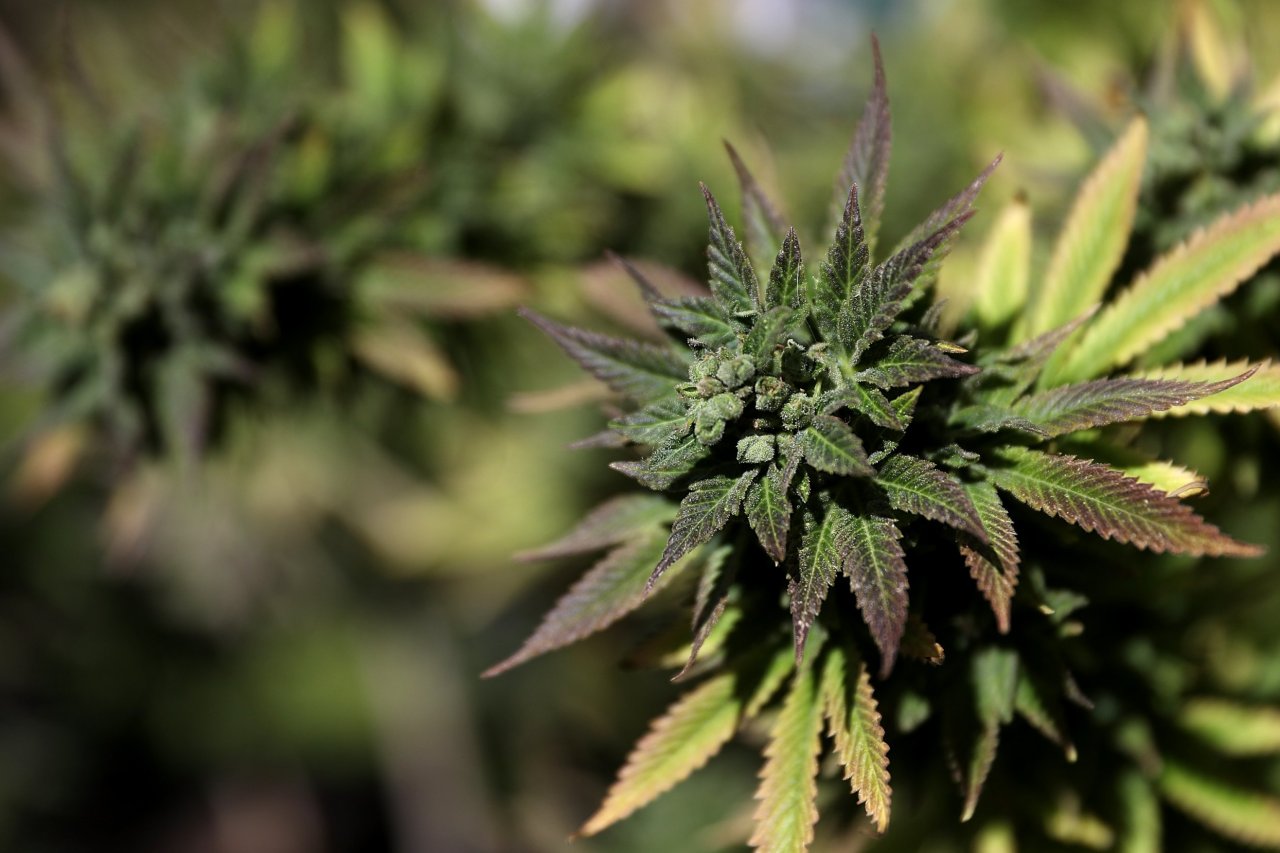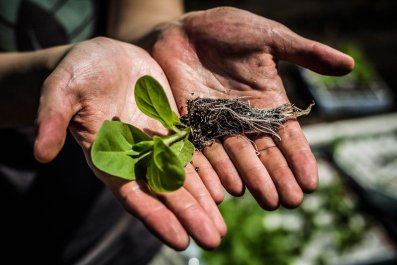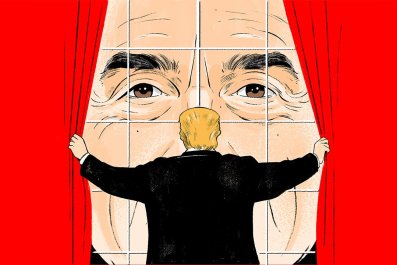Twenty years ago, less than a third of Americans favored legalizing marijuana. Now, 62 percent do, according to a Pew Research Center poll last fall, including nearly three-quarters of millennials. Ten states allow recreational use of weed, and 33 permit doctors to prescribe it for chronic pain, anxiety and other ills. A growing marijuana legalization industry, which includes many for-profit companies, is heavily promoting the drug.
But what do we know about its health effects? Not enough, says author Alex Berenson. That fact occurred to him during a conversation with his wife, a forensic psychologist who works with the criminally ill. She mentioned that many of the people she saw were either high on cannabis when they committed their crime or habitual users.
A former reporter at The New York Times, Berenson did some research and found, to his surprise, that scientists had hard data to support his wife's anecdotal evidence. A 2017 report, in particular, linked marijuana use to schizophrenia.
Berenson went on to write Tell Your Children, an investigation into the risks of widespread marijuana use. He spoke with Newsweek about what he considers the pitfalls of legalization.
What was your reaction to hearing that research connected schizophrenia and marijuana?
How could no one know? And it turns out that scientists do know! In 2017, there was a report from the National Academy of Medicine that definitively said this, and nobody really paid attention.
2017? Why did it take so long for the report to come out?
Cannabis wasn't very widely used until about 1970. The new, stronger stuff, the more potent versions of it, have only come into being in the last 20 years or so. The evidence has been mounting, but the [marijuana] advocacy community has done a good job throwing smoke around this.
Even with tobacco and lung cancer, it took about 40 years for scientists to prove beyond a reasonable doubt that this [cancer] connection was really there. And it took another five or 10 years for the tobacco industry to finally stop arguing about it.
What does the new research reveal about marijuana's effects on the body and the mind?
You can't say, "As a result of smoking, this set of biological changes happens that causes you to have these thoughts that you can't control." I doubt we will ever get to that point. But you can still prove it epidemiologically [with association studies], and by looking at other biological mechanisms. Is there a plausible case here? What happens to people who we know suffer from schizophrenia when they use marijuana? There are ways to get to part of a scientific understanding.
What about people who use marijuana to treat the symptoms of depression and anxiety?
You probably shouldn't be using any kind of intoxicant to handle depression or anxiety. This goes for alcohol too. Cannabis and alcohol are recreational drugs. If you want to use them on the weekend and have a good time, that's reasonable. But we don't pretend that alcohol is medicine. Why should we pretend that cannabis is?
As more states move toward legalization, what will play out in terms of regulation?
The U.S. is probably going to legalize, and something big would have to change for that to not happen. Certainly, if a Democrat is elected president in 2020, there'll be a big push for federal legalization. I'm not in favor of that because I think it lowers prices, drives up use and increases the perception that the drug is safe. Those are all problematic.
But the most important thing is not whether it's legal or not, but that people know the risks in using it. And we need to spend money advertising those risks the way we spend money advertising the risks of tobacco. Even though tobacco is legal and cannabis isn't, fewer teens use tobacco than cannabis.
What regulation is necessary?
Obviously, you want to make sure that stores are selling to people 21 and over and not to minors. You want messaging campaigns about the dangers of cannabis. And you want to start collecting hard data on the harmful effects. There should be studies about violence associated with marijuana, about psychosis, about suicide and about driving. There should also be restrictions on marketing and advertising. Let's get some data if we're going to do this, so we can stop arguing about what the numbers really are.
Has crime increased in states that have legalized marijuana?
Violent crime has increased in all states where you can go into a store and buy marijuana. No one has proven yet that it is the cause. But before legalization, people said, "This is going to reduce violent crime. This is going to be a real positive. It's going to end the black market in those states. It's going to give police a chance to look at more serious crimes." You can no longer say that. It is clearly not true that legalization reduces violent crime.
There are a lot of cases where there's a clear causal link. I'm not saying half the cases, but I can point to plenty. Alcohol causes crime too, but alcohol makes two people who are going to get into an argument get into a fight. Marijuana seems to make somebody paranoid, and then they literally stab eight children to death. [Berenson is referring to the case of Raina Thaiday of Australia, one of the first judicial findings linking marijuana, schizophrenia and violence. A psychologist determined her long-term cannabis use had likely triggered her schizophrenia.]
In terms of the science, there's a ton of research to do. In terms of what's going to happen, I am not optimistic. If legalization proceeds, heavy use will continue to rise. And since marijuana can cause psychosis and violent crime associated with psychosis, you would expect that marijuana-related violent crime is going to continue to rise.















